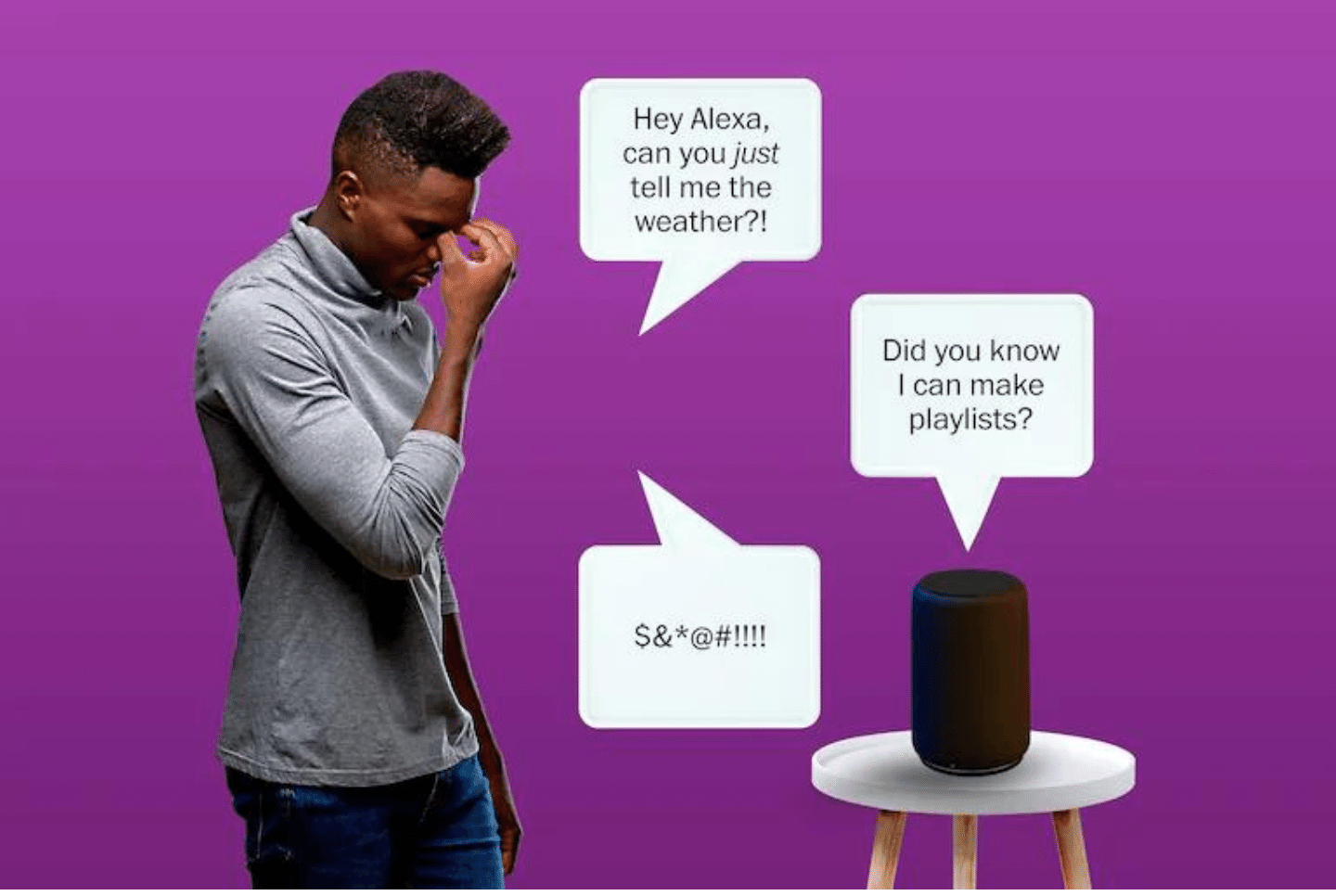
Americans welcomed voice assistants into their homes on claims that Siri, Alexa and Google Assistant would be like quasi-human helpers, seamlessly managing our appointments, grocery lists and music libraries. From 2019 to 2021, the use of voice assistants among online adults in the United States rose to 30 percent from 21 percent, according to data from market research firm Forrester. Of the options, Siri is the most popular — 34 percent of us have interacted with Apple’s voice assistant in the last year. Amazon’s Alexa is next with 32 percent; 25 percent have used Google Assistant; and Microsoft’s Cortana and Samsung’s Bixby trail behind with five percent each.
While use is on the rise, social media jokes and dinner-party gripes paint voice assistants as automated family members who can’t get much right. The humanlike qualities that made voice assistants novel make us cringe that much harder when they fail to read the room. Overconfident, unhelpful and a little bit desperate, our voice assistants remind us of the people and conversations we least enjoy, experts and users say.
As Brian Glick, founder of Philadelphia-based software company Chain.io, puts it: “I am not apt to use voice assistants for things that have consequences.”
Read the Full Article